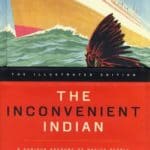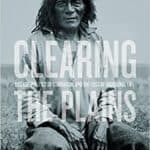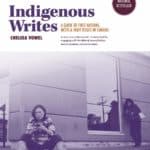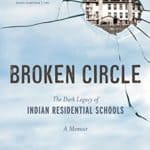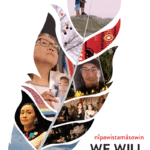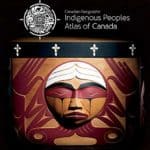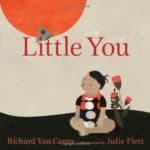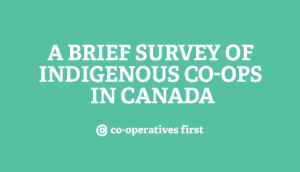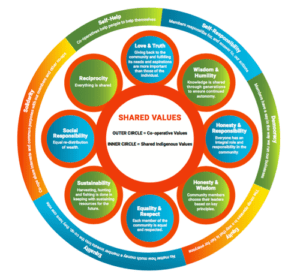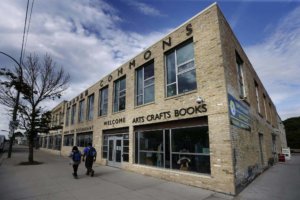For National Indigenous Peoples Day, we usually attend a large gathering in Saskatoon called Rock your Roots Walk for Reconciliation. The event is a celebration of difference and recognizes the sacrifices and resilience of residential school and day school survivors, missing and murdered Indigenous women and girls, and Sixties Scoop survivors. This year, of course, large events like this have been cancelled. So, to celebrate and honour National Indigenous Peoples Day, we are observing the day as a holiday and put together a list of works by Indigenous writers and artists for you to explore.
Trista’s recommendation
 The Inconvenient Indian: A Curious Account of Native People in North America by Thomas King
The Inconvenient Indian: A Curious Account of Native People in North America by Thomas King
“Neither a traditional nor all-encompassing history of First Nations people in North America, The Inconvenient Indian is a personal meditation on what it means to be “Indian.” Thomas King explores the relationship between Natives and non-Natives since the fifteenth century and examines the way that popular culture has shaped our notion of Indigenous identity, while also reflecting on his own complicated relationship with activism.” CBC, Canada Reads entry 2015
Audra’s recommendation
 Clearing the Plains: Disease, Politics of Starvation, and the Loss of Aboriginal Life by James Daschuk
Clearing the Plains: Disease, Politics of Starvation, and the Loss of Aboriginal Life by James Daschuk
“In arresting, but harrowing, prose, James Daschuk examines the roles that Old World diseases, climate, and, most disturbingly, Canadian politics–the politics of ethnocide–played in the deaths and subjugation of thousands of aboriginal people in the realization of Sir John A. Macdonald’s “National Dream.”” – Google Books
Aasa’s recommendation
 Indigenous Writes: A Guide to First Nations, Métis, and Inuit issues in Canada by Chelsea Vowel
Indigenous Writes: A Guide to First Nations, Métis, and Inuit issues in Canada by Chelsea Vowel
“So many people in Canada lack basic knowledge about Indigenous people — and Indigenous Writes should be required reading. Métis author Chelsea Vowel’s guide breaks down terminology, history, myths, and issues that everyone should be aware of when it comes to First Nations, Métis, and Inuit people: from taxes to treaties, and Two-Spirit Identity to Indigenous farming. For non-Indigenous people in Canada to take the process of reconciliation seriously, they need to start with the basics from this book. On top of being brilliant, Vowel’s writing is accessible, funny, and totally engaging.” – Aasa
Kyle’s recommendation
 Broken Circle: The Dark Legacy of Indian Residential Schools by Ted Fontaine
Broken Circle: The Dark Legacy of Indian Residential Schools by Ted Fontaine
“Theodore (Ted) Fontaine lost his family and freedom just after his seventh birthday, when his parents were forced to leave him at an Indian residential school by order of the Roman Catholic Church and the Government of Canada. Twelve years later, he left school frozen at the emotional age of seven. He was confused, angry and conflicted, on a path of self-destruction. At age 29, he emerged from this blackness. By age 32, he had graduated from the Civil Engineering Program at the Northern Alberta Institute of Technology and begun a journey of self-exploration and healing.” – Google Books
“I read it to learn more about residential schools and also learned a lot about family and Canada.” – Kyle
Tanner’s recommendation
 nîpawistamâsowin: We Will Stand Up by Tasha Hubbard
nîpawistamâsowin: We Will Stand Up by Tasha Hubbard
“nîpawistamâsowin: We Will Stand Up is a Canadian documentary film, directed by Tasha Hubbard and released in 2019. The film centres on the 2016 death of Colten Boushie, and depicts his family’s struggle to attain justice after the controversial acquittal of Boushie’s killer. Narrated by Hubbard, the film also includes a number of animated segments which contextualize the broader history of indigenous peoples of Canada.” – Wikipedia
Dan’s recommendation
 Indigenous Peoples Atlas of Canada
Indigenous Peoples Atlas of Canada
“Maps, much like the co-op model, are tools that continue to be used to colonize people and spaces. Reimagining how we use these tools is one small step towards understanding how to move forward together in a way that respects, honours, and celebrates difference and sovereignty rather than demanding sameness. For National Indigenous People’s Day, I will continue to explore this geography through a lens I am doing my best to better understand.” – Dan
Heather’s Recommendation
 Little You by Richard Van Camp and illustrated by Julie Flett
Little You by Richard Van Camp and illustrated by Julie Flett
“Richard Van Camp, internationally renowned storyteller and bestselling author of the hugely successful Welcome Song for Baby: A Lullaby for Newborns, has partnered with talented illustrator Julie Flett to create a tender board book for babies and toddlers that honors the child in everyone. With its delightful contemporary illustrations, Little You is perfect to be shared, read or sung to all the little people in your life, and the new little ones on the way!” – Google Books


